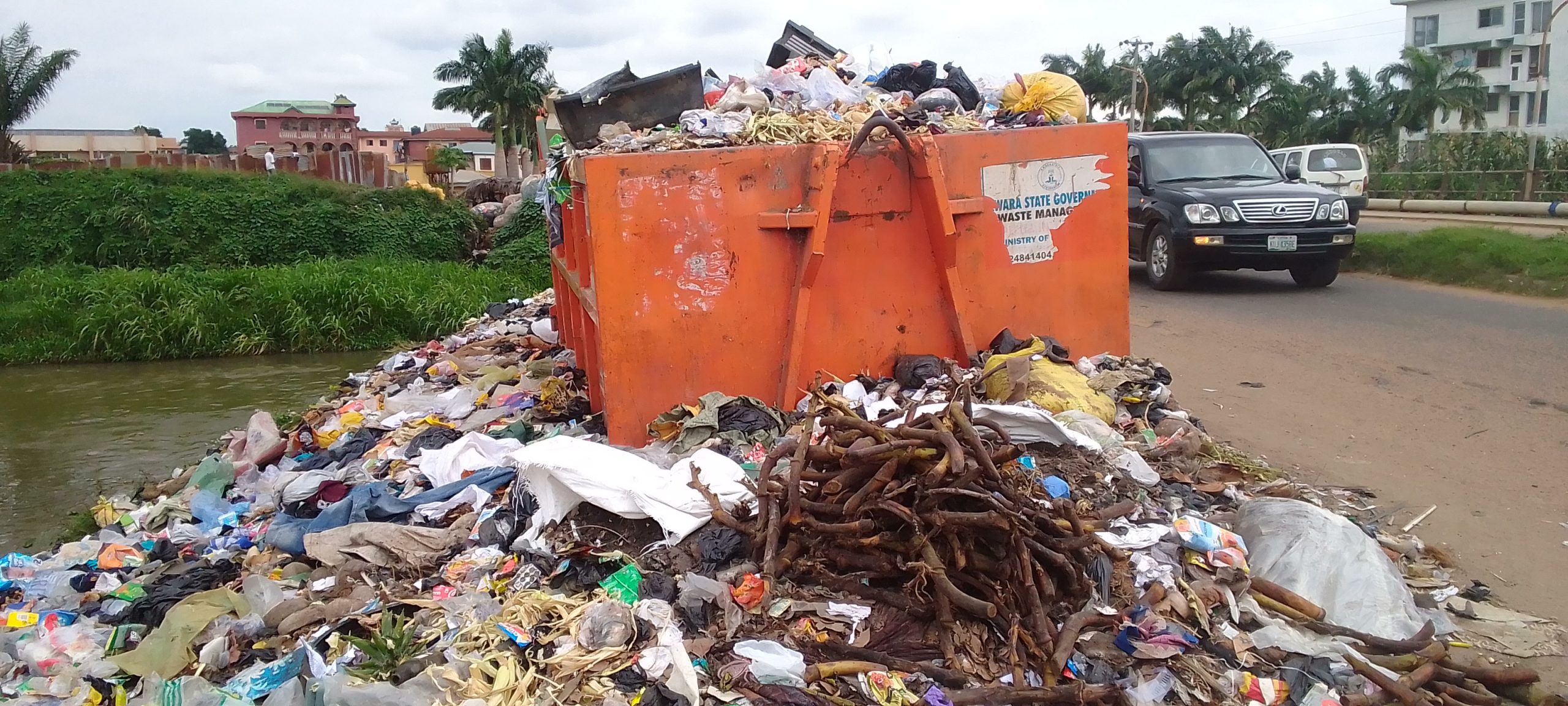By Safiyah Suleiman
Climate change has long been identified as primarily a human-caused phenomenon, with natural causes playing a minor role.
In Nigeria, many human activities contributing to climate change are often linked to poverty.
People engage in deforestation for fuel and agriculture, and they burn fossil fuels as a cheap energy source.
However, a more subtle yet damaging habit has also become ingrained in the average Nigerian’s behavior: improper waste disposal.
It is common for individuals to dump waste, such as sachets or water bottles, on the road without considering the environmental impact.
Nigeria is currently battling incessant flooding, which is largely rooted in the habit of dumping waste into drainage systems.
While drainage blockages are a contributing factor, other issues such as urbanization, inadequate infrastructure, and poor urban planning are equally daunting and contribute to the flooding crisis.
Furthermore, many states are recently facing varying degrees of cholera outbreaks, which are directly linked to poor sanitation and waste management practices.
It would be negligent for other states, which have not yet recorded any cases, to relax preventive measures.
Unlike Lagos, Nassarawa, and several states currently battling cholera, Kwara State has yet to record any cases.
While the absence of cholera in Kwara is fortunate, it is crucial for the state to remain vigilant and proactive in its preventive measures.
The Kwara State Ministry of Environment has recently implemented measures such as prohibiting indiscriminate waste dumping in certain areas and raising public awareness about cholera prevention.
Despite these efforts, the Ilorin metropolis continues to face significant waste management challenges.
Overflowing waste bins on main roads and waste dumped along roadways and in suburban areas are common sights.
Waste is often dumped on road pedestals, with scavengers scattering it further. During the rainy season, the problem worsens as people frequently dispose of waste in drainage systems and riverbanks, exacerbating environmental degradation and increasing the risk of water-borne diseases.
Cholera, caused by the bacterium Vibrio cholerae, is a deadly disease that can spread rapidly, particularly during the rainy season.
The bacterium thrives in contaminated water and can cause severe diarrhea and dehydration, leading to death if not treated promptly.
The primary mode of transmission is through the ingestion of contaminated water or food. Poor sanitation and hygiene practices contribute significantly to the spread of the disease.
During heavy rains, waste and sewage can wash into rivers and other water sources, contaminating them and increasing the risk of cholera outbreaks.
Therefore, it is imperative for Kwara State to enhance its waste management practices and continue raising awareness to prevent a potential cholera outbreak.
Efforts should include improving waste disposal infrastructure, enforcing regulations against improper waste disposal, and educating the public on the importance of maintaining clean and safe environments.
Additionally, medical interventions are necessary to ensure that any emerging cases of cholera are promptly identified and managed to prevent widespread outbreaks.
Regular health screenings, provision of clean water, and availability of medical supplies are critical to keeping the disease in check.
By addressing these issues scientifically and systematically, Kwara State can reduce the risk of cholera and protect the health of its residents.

